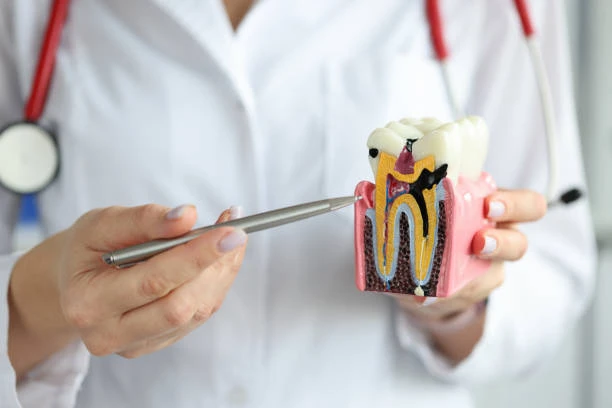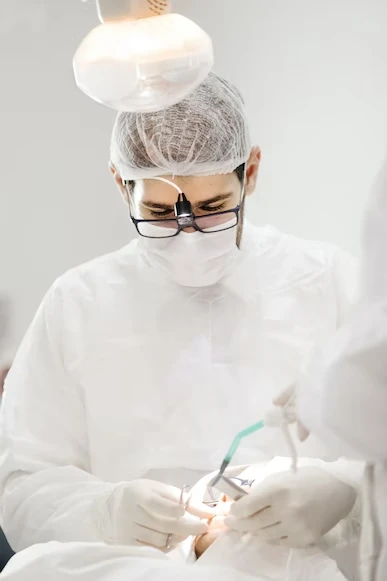- What is a Cavity?
- Causes of Cavities
- What Does a Cavity Feel Like?
- Symptoms of Cavities
- How to Prevent Cavities
- Diagnosing and Treating Cavities
- Home Remedies for Cavities
- Common Myths About Cavities
- Visit Your Dentist At Supremia Dental Clinic Now!
- Conclusion
Have you ever had a sudden toothache that you couldn’t explain? Have you ever felt an uncomfortable pain in a tooth that seemed to come out of nowhere?
Chances are, you may have experienced the signs of a cavity. Cavities, or dental caries, are common dental issues affecting teeth.
They occur when bacteria in the mouth break down the enamel and cause a hole in the tooth. But what does a cavity feel like?
The sensations caused by cavities can vary from minor discomfort to sharp, shooting pain. The exact feeling of a cavity can depend on the size and location of the cavity, as well as the severity of the decay.
The most common symptom of a cavity is tooth sensitivity, but other sensations can be present too. Understanding the signs and symptoms of a cavity can help you identify and address the issue before the decay worsens.
So, what does a cavity feel like? Read on to find out.
What is a Cavity?

A cavity is a hole in a tooth caused by tooth decay. It is usually the result of an accumulation of bacteria and plaque that eat away at the tooth’s enamel.
This can weaken the tooth structure and cause a cavity. Cavities are usually painless in the early stages and are often not noticed until they become more significant and severe.
Regular dental check-ups are essential to identify and address any cavities before they worsen.
When left untreated, a cavity can cause severe damage to the tooth structure and lead to toothache, infection, and even tooth loss. It is essential to address any signs of a cavity as soon as possible to prevent further damage.
Causes of Cavities
Bacteria in the mouth cause cavities. Bacteria feed on sugar and other carbohydrates in our food, producing acid that wears away at the tooth’s enamel. Poor oral hygiene can also contribute to the formation of cavities.
When bacteria and plaque are not removed from the teeth regularly, they can accumulate and cause decay.
Other factors that can increase the risk of cavities include:
- Dry mouth.
- Eating a lot of sugary or starchy foods.
- Not drinking enough water.
- Drinking too much soda or other sugary beverages.
- Smoking.
- Certain medical conditions.
What Does a Cavity Feel Like?
The sensation of a cavity can vary depending on the cavity’s size and location and the decay’s severity. Here are some familiar sensations associated with cavities:
Tooth Sensitivity
The most common symptom of a cavity is tooth sensitivity. This can include pain or discomfort when consuming hot or cold foods or drinks or breathing cold air.
Pain
Pain can range from mild to sharp and throbbing. It can be a dull, aching sensation or a sudden, shooting pain.
Pressure
Some people may experience a feeling of pressure in their teeth. This can be due to bacteria buildup, which can cause the tooth to expand and pressure surrounding teeth and tissues.
If you experience any of these symptoms, seeing your dentist as soon as possible is essential to prevent further damage.
Symptoms of Cavities
In addition to the sensations listed above, there are other signs to look out for when it comes to cavities. These include:
Discoloration
Cavities can cause the tooth to discolor, turning yellow, brown, or black.
Bad Breath
Bacteria in the mouth can cause bad breath.
Swelling
Swelling can occur when the cavity is severe, and the tooth has become infected.
Loose Teeth
If the cavity is left untreated, the tooth can become loose and eventually even fall out.
How to Prevent Cavities
The best way to prevent cavities is to practice good oral hygiene and visit your dentist regularly. Here are some tips for preventing cavities:
Brush twice a day
Brushing your teeth twice daily with fluoride toothpaste can help remove plaque and reduce your risk of cavities.
Floss daily
Flossing helps remove plaque and food particles from between your teeth.
Limit sugary foods and drinks
Limiting sugary foods and drinks can reduce your risk of cavities.
Visit your dentist regularly
Regular dental checkups can help detect cavities early and prevent further damage.
Diagnosing and Treating Cavities
If your dentist suspects you have a cavity, they may visually examine your mouth and use x-rays to confirm the diagnosis.
If the cavity is small, they may be able to fill it with a resin material. For larger cavities, a crown may be necessary. In some cases, a root canal may be required.
Home Remedies for Cavities
Once a cavity has formed, home remedies cannot be used to treat it, as they are not powerful enough to eradicate the decay. However, there are some things you can do to help relieve the pain and discomfort associated with cavities:
Salt water rinse
A saltwater rinse can help reduce inflammation and relieve pain.
Clove oil
Clove oil has antiseptic, anti-inflammatory, and pain-relieving properties. Soaking a cotton ball in clove oil and applying it to the affected tooth can help reduce pain and inflammation.
Tea tree oil
Tea tree oil has natural antiseptic and anti-inflammatory properties that can help reduce pain and swelling.
Turmeric
Turmeric has anti-inflammatory and pain-relieving properties. Mixing a teaspoon of turmeric with water and applying it to the affected area can help reduce pain and inflammation.
Common Myths About Cavities
There are many myths and misconceptions about cavities. One of the most common myths is that cavities only occur in children. This is not true—cavities can occur at any age.
Another myth is that cavities can be cured with home remedies. This is also not true—home remedies can help relieve symptoms, but they cannot repair the damage caused by a cavity.
Finally, some people believe that only sugary foods can cause cavities. While sugary foods and drinks can increase the risk of cavities, they are not the only cause. Poor oral hygiene, dry mouth, smoking, and certain medical conditions can also increase the risk of cavities.
Visit Your Dentist At Supremia Dental Clinic Now!
When you visit your dentist at Supremia Dentistry, you can enjoy your favorite treats with a smile. We serve top-quality dental care to our patients from all over Wake Forest, North Carolina.
We aim to give you the finest because you deserve it. Our state-of-the-art facility features the most recent technical innovations and luxurious facilities. Our team is up-to-date on the latest research and discoveries in dentistry and knows how to do the latest procedures.
We belong to a family where every staff member is well-versed in all facets of the profession. We collaborate to provide you with an excellent experience.
Our dentists are committed to providing excellent patient care in a friendly, caring environment. We’re here to help you achieve beautiful smiles for life!
If you would like to learn more about our services, you can click here. We want you to become a part of our family and try a new kind of dentistry by making an appointment, so click this link or call (919) 556-6200 today!
Conclusion
Cavities are a common dental issue that can cause pain and discomfort. The exact feeling of a cavity can vary, but the most common symptom is tooth sensitivity. Other signs of a cavity can include sharp pain, aching, and a visible hole or discoloration in the tooth.
Practicing good oral hygiene is the best way to prevent cavities. Still, regular checkups with your dentist can also help identify and address any signs of a cavity before it worsens.
If you think you may have a cavity, visiting your dentist as soon as possible is essential to prevent further damage. Home remedies can help relieve the symptoms of a cavity, but they cannot repair the underlying damage.
Understanding the signs and symptoms of a cavity can help you identify and address the issue before it worsens.
If you are experiencing any of the symptoms of a cavity, it is essential to visit your dentist as soon as possible.

